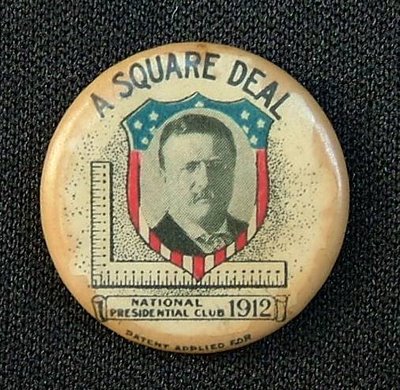Theodore Roosevelt created a domestic program called the “Square Deal”. He based the program on three basic ideas: conservation of natural resources, control of corporations, and consumer protection. The “Square Deal” did try to help the problem of a few rich owners influencing business and politics and it did not fully end bad trusts. In difference from his precursor William McKinley, Roosevelt believed that such government action was necessary to mitigate social evil, and as president denounced “the representatives of predatory wealth” as guilty of “all forms of iniquity from the oppression of wage workers to defrauding the public. ” Trusts and monopolies became the primary target of Square Deal legislation.
I agree what Theodore Roosevelt did. The working people can now have some control of the corporations. The government should help business from being corrupted, and that was the purpose of the Elkins Act. It also has consumer protection: A great example of this is the Meat Inspection Act of 1906 which allowed the government to inspect meat that participated in interstate commerce. But last and not least, the conservation of land through the Newlands Act of 1902, which enabled the government to use money from sales of public land to create irrigation networks in the west. It is interesting to see how both Roosevelt Presidents worked to shape the economy of America but they did it as cousins who served as U.S. President 30 years apart from each other.

